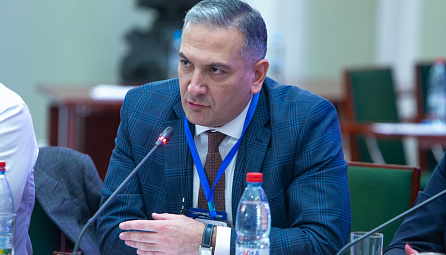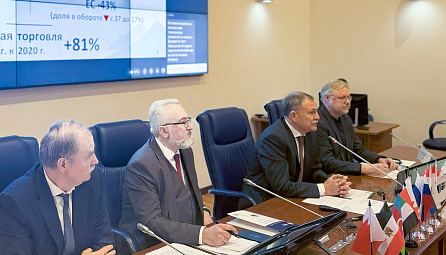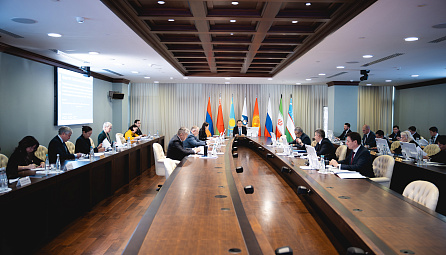05 Nov 2025
Arzybek Kozhoshev met with Suhail Mohamed Al Mazrouei, UAE Minister of Energy and Infrastructure
05 Nov 2025
Arzybek Kozhoshev: "The energy sector is one of the main directions for developing integration within the EAEU"
05 Nov 2025
Eurasian Economic Commission plans cooperating with UAE on transport, infrastructure and logistics digitalization

01 Nov 2025
Georgy Arzumanyan: "Leasing is not just a way to upgrade machinery and equipment but a strategic integration tool"

01 Nov 2025
Ruslan Davydov: "Customs regulation is one of the key factors for promoting foreign trade and building transport and logistics chains in the EAEU"
31 Oct 2025
Natalia Alexandrovich Appointed Deputy Director of EEC Transport and Infrastructure Department
30 Oct 2025
EAEU technical regulation development as industry protection tool discussed in St. Petersburg
29 Oct 2025
EEC discussed expanding pharmaceutical products exports to markets of partner countries in trade agreements
29 Oct 2025
EEC and CIS improving information technologies in statistics

29 Oct 2025
EEC and WHO Regional Office for Europe deepen cooperation

25 Oct 2025
Bakytzhan Sagintayev conveyed greetings to Kassym-Jomart Tokayev on Republic Day
24 Oct 2025
Commission held seminar on expanding opportunities of EAEU countries' trade with China
